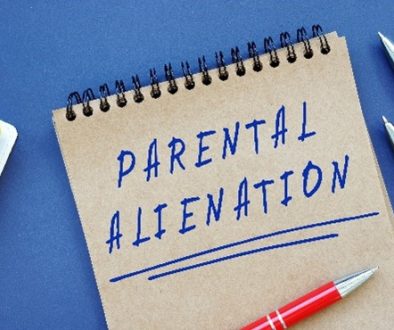The Perils of Non-Salaried High-Income Support Awards
 Business owners, LLC members, solo practitioners, and others with non-salaried income can have a hard time of it during divorce. Courts are ill-equipped to deal with non-traditional incomes, and they are often unfamiliar with the complex taxation of high earners and the impact that can have on cash flow. Nowhere is that more evident than when they are called on to make spousal or child support determinations. Two recent cases illustrate the woes high income, non-salaried spouses can face.
Business owners, LLC members, solo practitioners, and others with non-salaried income can have a hard time of it during divorce. Courts are ill-equipped to deal with non-traditional incomes, and they are often unfamiliar with the complex taxation of high earners and the impact that can have on cash flow. Nowhere is that more evident than when they are called on to make spousal or child support determinations. Two recent cases illustrate the woes high income, non-salaried spouses can face.
Everett v. Tawes, 298 Va. 25, 833 S.E.2d 876 (2019)
In Everett v. Tawes, Everett, a professional chef, was a member of several LLCs that ran multiple restaurants in Virginia. He derived income via a “guaranteed payment to management” of $10,000 per month. For tax purposes, he was also required to report his share of the ordinary income from the LLCs, regardless of whether or not he actually received a cash distribution. Thus, his tax returns reflected a gross monthly income of $33,000. As is the case for many LLC members, Everett received only the small portion of pass-through income from the LLCs designed to cover the personal tax liability the LLC engendered. While the trial court acknowledged that “an expert is needed to understand” Everett’s finances, it nevertheless adhered to the support guidelines that required spousal support be based on gross income.
Complicating matters further, Kathryn Tawes filed for temporary spousal support. At the same time she filed for divorce, she requested a hearing to establish the amount of interim support she would receive while the divorce was proceeding. Such a hearing and the resulting order are legally characterized as pendente lite (literally, “pending litigation”). Everett’s non-traditional income, and the pendente lite nature of the awarded spousal support, combined to engender a three-year legal battle that went all the way to the Virginia Supreme Court and highlighted the shortcomings of the legal system to deal with high-income earners and the legal intricacies that may accompany such cases.
During Everett’s legal odyssey, he was ordered to continue to pay the mortgage on the marital residence and Tawe’s car payments and insurance, totaling $5,900 per month. In addition, the court ordered him to pay $7,831 in interim (pendent lite) spousal support, as well as arrears retroactive to the divorce filing date in the amount of $46,986.
Facing a support award far beyond his ability to pay from his cash flow of $10,000 per month, Everett appealed the district court’s decision, arguing that the pendent lite spousal support award and the resulting arrears were excessive. He also asserted that the appeals court had the authority to retroactively modify the pendent lite order, a legal point that Tawes contested.
The appeals court observed that the pendent lite award and the arrearage it created were an “injustice”, stating:
Gentlemen, I do find it offensive to come in and imply that somebody’s income is $600,000 [when] he is living in an outbuilding and there is absolutely no evidence of a lavish lifestyle or anything else and to come in and to point to certain areas in a tax return and say, see, you know, there is a lot more money here than meets the eye, when there is not, absolutely no external evidence of that being true.
Regardless, the court was unsure of its authority to retroactively modify a pendent lite order and consequently ordered the arrearage to remain, which, by then, valued at $66,437.
In November 2017, a final divorce decree was granted. Although the amount of monthly spousal support was reduced to $4,900, the district court let stand the $66,437 arrearage.
A further appeal ensued. At this point, Everett and his lawyers were no longer simply able to contend that the spousal award was excessive, they also needed to have a ruling as to whether a pendent lite order was interlocutory and, therefore, modifiable in order to obtain the relief sought.
On October 31, 2019, the Virginia Supreme Court settled the matter, decreeing:
- A pendente lite order is interlocutory;
- Interlocutory orders can be retroactively modified (citing cases that dated back to 1848 to support their findings); and
- the trial court had abused its discretion in refusing to reconsider modifying the pendente lite award.
Three years after it was initially enjoined, the case returned to district court for consideration in a manner consistent with the high court’s opinions.
Jury v Jury; 2017-NMCA-036, 392 P.3d 242
Jury v. Jury, a New Mexico case, also illustrates the difficulties courts have in coping with non-traditional income.
Victor Jury, a successful businessman, had income derived from employment at, and shareholder interest in, Summit Electric Co., Inc, and shareholder interest in Jury & Associates, LLC. As is the case for many business owners, Jury’s gross income fluctuated, sometimes radically, from year to year.
The Jury’s divorce, initially filed for in 2006, was granted in 2010. Terms of the divorce included a child support obligation of $4,872 per month. This support amount resulted from a complex calculation that included adjustments for spousal support paid, unequally shared physical custody, and direct payment by husband of the children’s health insurance and school tuition. The foundation of the calculation rested on the court’s determination of Victor Jury’s gross annual “earning capacity”, which the court used as a surrogate for gross income and pegged it at $750,000. To arrive at this figure, the judge relied on an average of 10 years of financial information from tax returns.
As part of the divorce settlement, Victor Jury was required to provide his ex-wife with updated financial information every year. Upon receiving Jury’s information for 2011, Colette Jury claimed that the increase in gross income reported resulted in a “material and substantial change in circumstances affecting the welfare of the children” and sought to have the child support amount increased.
When the district court denied the wife’s motion, Colette Jury appealed the decision. She asserted the district court’s denial was based on an erroneous determination of Victor Jury’s gross income and, by extension, an erroneous determination of child support.
In January 2012, a CPA was appointed to analyze the income reported for 2011. When the CPA applied the same method that previously had been used to arrive at gross income, it resulted in a 2011 income of $2,785,363. The CPA testified that the 2011 gross income was comprised of salary and pass-through income earnings proportionate to his ownership share in Summit Electric and Jury & Assoc. The CPA further implied that the 2010 calculation was in error since the court had deducted taxes paid from Jury’s gross income.
At the hearing in 2014, the district court declined to modify the 2010 decree, stating “I did the best job I could”. In apparent exasperation, the judge continued, “And I said at the time, I don’t want to see you back in a year, or two years…The income fluctuates up and down, through the last eleven years. There is a huge variation from year to year. So I was well aware at the time that I could pick a number and then the next year the numbers would be twice that much.”
After the ruling, in order to know how and why the judge reached the decision and to determine if an appeal was warranted, Colette Jury requested a deadline for “findings of fact and conclusions of law” that would address a perceived inconsistency. The judge declined, responding “We’re done. I’ve already ruled”.
But they weren’t done. In fact, in October 2014, Collette Jury filed a motion to reconsider numerous issues, and subsequently, an appeal.
In its finding in 2017, the appellate court addressed “the notable absence of findings of fact and conclusions of law supporting the district court’s ruling”.
In the determination of child support obligations, the Appellate Court held:
- child support awards need to adhere to the guidelines. Any deviation from the guidelines is permitted only in decrees that contain a statement of the reasons for the deviation, and
- while deviation from child support guidelines is permitted, deviation is not authorized with respect to the calculation of the parties’ gross monthly incomes.
The court took issue with the way child support obligations were determined, specifically:
- excluding taxes from income prior to calculating support;
- going rogue in the number of years used to arrive at an average income (NM child support determination requires an award to be based on “current financial resources” and a 10-year average is generally not a reliable indicator of current earning capacity).
With respect to any allowed deviation from the guidelines, the Court found:
- it is in error to deviate from child support guidelines in calculating gross incomes, except as permitted by statute; and
- it is in error to deviate from the guidelines without providing written justification.
As to modification of the child support obligation, the Court stated:
- If changing circumstances result in a greater than 20% difference in the amount of the award, the court can modify the obligation without reference to a “material and substantial change in circumstances affecting the welfare of the children”.
In conclusion, the Appellate Court ruled that the district court did not follow the guidelines in its calculation of gross income for 2011 in what constituted an abuse of the court’s discretion requiring reversal and remand.


